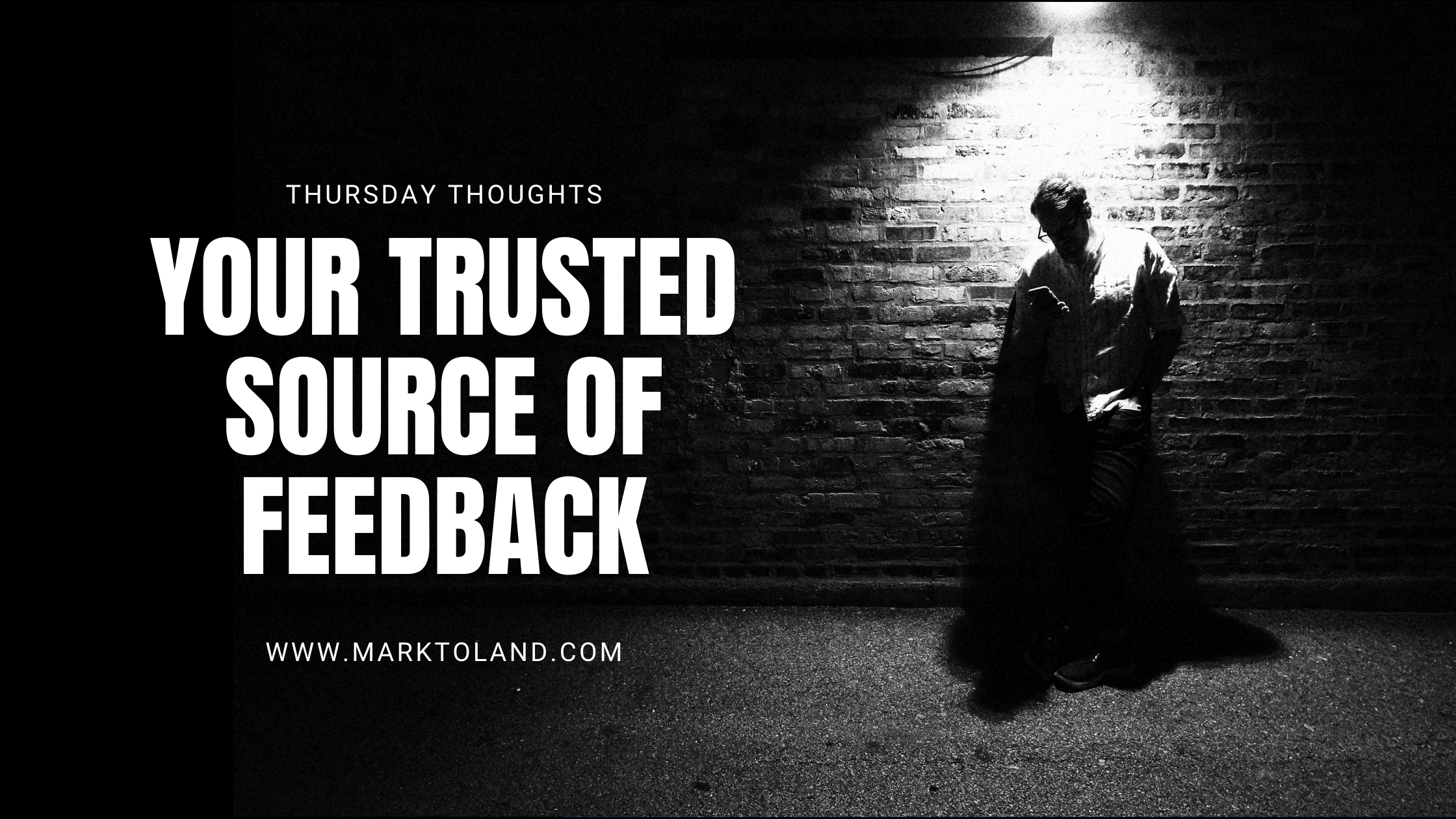Something that’s really helped me in recent years is to only listen to the advice, critiques, and opinions of people that I specifically depend on for that purpose. Meaning, anytime I receive any external criticism I run it by those people first. If they agree, I take it seriously. If they disagree, I dismiss it.
For me, I only trust two people to give me honest feedback: my wife and my writing partner. I know that if something isn’t working onstage they’re going to be honest with me and let me know how bad it is. Likewise, if something is going well I can depend on them to encourage me to make it even better.
The reason this is so helpful is that it eliminates the need to respond to every single piece of feedback you receive. If you don’t have a trusted source for feedback then you’ll consider every comment about your work and they will weigh on your mind. You’ll question your choices, you’ll second guess your latest ideas, you’ll lie awake at night wondering who was right, and you’ll find yourself creatively stifled by the endless stream of conflicting advice coming your way. Conversely, you may only receive positive feedback which only serves to feed your ego, without helping you improve.
When you have a person (or people) whose opinion you trust, then you can differentiate between what you need to work on and what you can ignore. It’s a creative filter that keeps you sane and lowers your anxiety.
I can’t tell you how many times I’ve had people come up to me after a show and say “That was a good show, but…” or “You should do something like this instead…” or, even something along the lines of ”I’ve seen better!” The receiving line after a show can often seem like a real-life version of YouTube comments, where people feel inclined to say things they might never say in normal situations.
Usually the people I trust most will reassure me that those comments are meaningless and I’m on the right track. Since I value their feedback above everyone else’s it makes it easier to forget those kinds of remarks and move on. Typically those comments are mixed in with positive ones, too, but good or bad I’ve learned to always check with the two people I trust to see if they agree. I always know that Stephanie and Frank have my best interests in mind and can count on them to be honest with me at all times.
So, take it from me, find your source of feedback and only trust them. Don’t believe what anyone tells you, except those people. And, when your trusted source of feedback speaks — LISTEN. Shut up and hear what they have to say, because you can count on them to tell you what you need to hear, good or bad, no matter what.
RELATED POSTS
About Mark Toland
Mark Toland is an award-winning mind reader and two-time TEDx Speaker. His mind blowing skills have been featured on NBC, ABC, FOX, CBS, NPR, WGN, Sirius XM, and more. Mark’s blog is a behind-the-scenes look at the life of a professional entertainer, full of creative thoughts for creative people. Sign up below so you’ll never miss a post.








